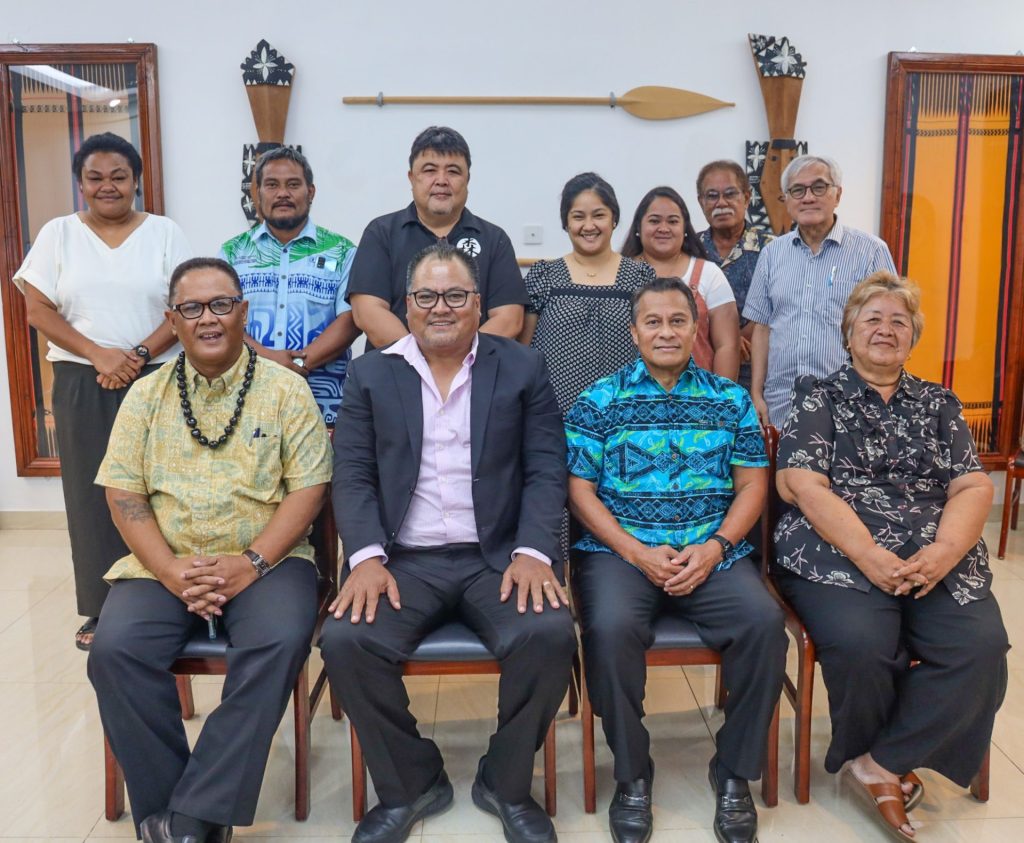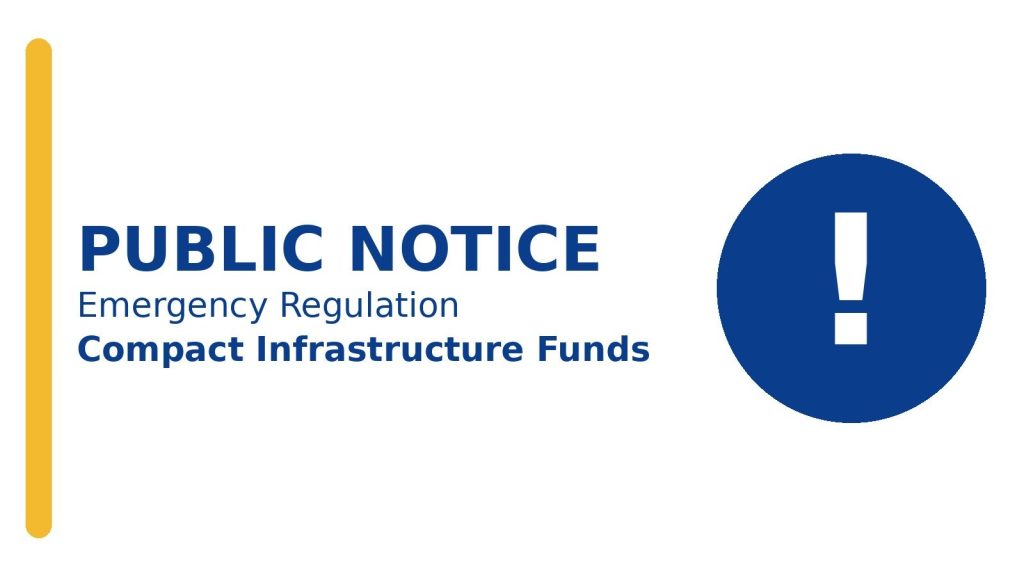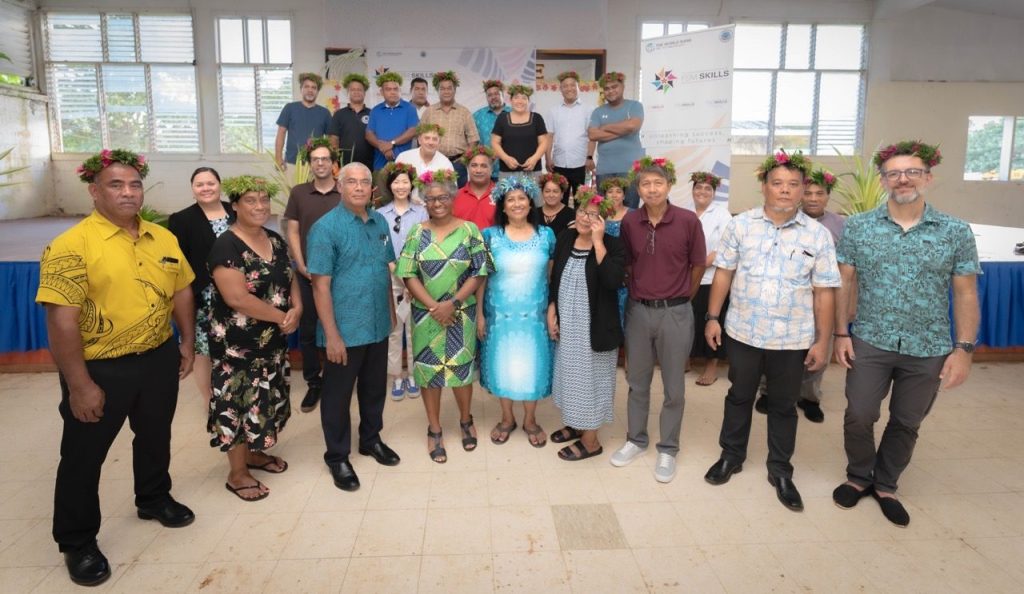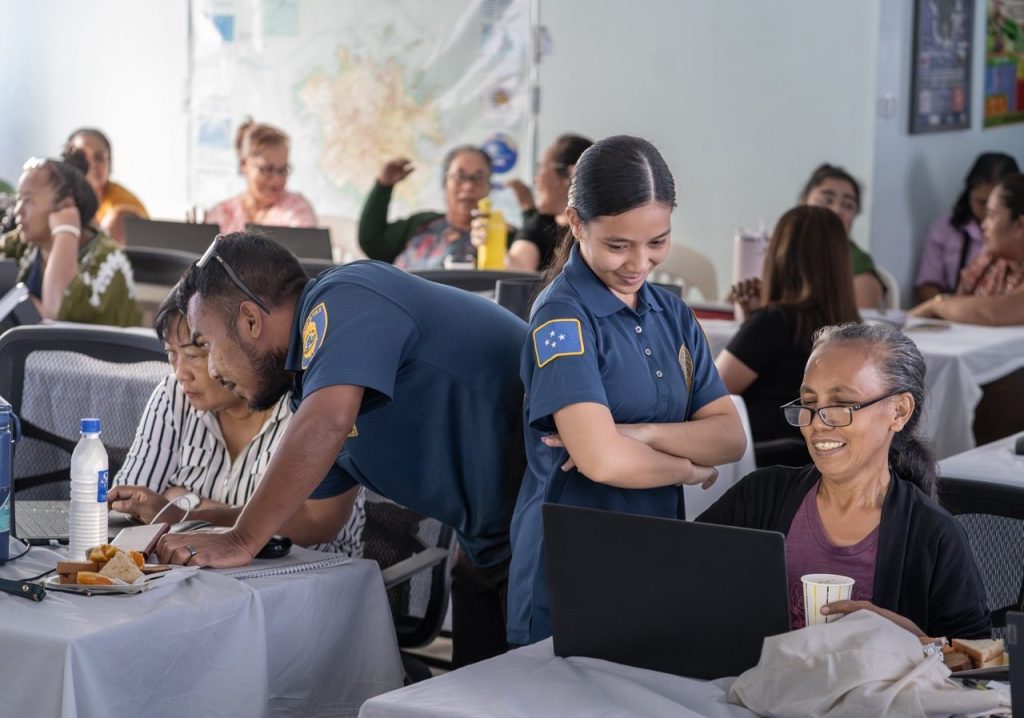The FSM Thanks the World Bank for their Support, Encourages Closer Collaboration
FUNAFUTI, Tuvalu—The FSM delegation, headed by Senior Consultant to the President on Foreign Affairs Lorin S. Robert and inclusive of Chief of Staff Leo Falcam Jr., met with Mr. Michel Kerf, the World Bank’s Country Director for Papua New Guinea and the Pacific Islands. Occurring while His Excellency David W. Panuelo was still attending a 50th Pacific Islands Forum’s closed-door meeting for leaders only, the primary outcomes of the meeting included the FSM vocalizing its appreciation for the World Bank’s assistance, advocating once more for IDA 19 funding to primarily be directed towards the Climate Resilient Transport Project, and requesting consultations on the necessary procedures for setting up a World Bank office in the FSM.
“It’s always good to carry on the conversations with one of our biggest development partners,” Senior Consultant Robert began.
“Thank you…look, we are really delighted by our partnership that we’ve established with the Government of the FSM,” began Mr. Kerf. “We’ve had the opportunity to scale up…the resources available under the IDA.”
The IDA grant funding works like this: every three years, the World Bank offers—to eligible countries—a three-year financial program to build opportunity for the nation per its own development goals. Citizens familiar with the recent developments of the fiber optic cables in FSM States of Yap and Chuuk, for example, may recall that these projects were largely funded by the World Bank under IDA 18. Other examples of successful projects include World Bank’s financial assistance to the FSM Department of Finance & Administration, with outcomes including the revised Financial Management Regulations and a new Financial Management Information System.
IDA 19, then, does NOT refer to the year 2019 but, rather, the 19th iteration of the IDA program—and it’s the IDA 19 funding that the FSM National Government is attempting to prioritize for the Climate Resilient Transport Project, i.e. building environmentally sustainable roads.
“With the IDA 18 funding almost fully committed…now would be a good time to think about what [the FSM] wants to do with the IDA 19 allocation,” Mr. Kerf said, noting that the funding will begin in 2020 and continue until 2023. “We expect the amount of resources available would be…about sixty million plus…if we start preparations now, by the time the Board is ready to approve, we’d be in the early phase.”
In addition to the IDA 19 funding discussion, there was also conversation on the forthcoming World Bank office in Pohnpei. It was advised that the intent is for the World Bank to open an office in the FSM before the end of 2019, i.e. “later this year.”
The meeting was arguably a follow-up from an August 1st 2019 courtesy call by the World Bank on President Panuelo, who received Senior Infrastructure Specialist Mr. Sean Michaels and his delegation. In that August 1st meeting, the President repeated his request for the Climate Resilient Transport Project. While that meeting primarily focused on climate resilience and maritime infrastructure and operations in the FSM, the President noted “A lot of our roads are dilapidated…they get flooded with heavy rain. I [want] planning to be taken into account for areas like erosion, areas that can be washed out. We want it to be resilient.”
President Panuelo has written, and received a reply from, the World Bank Country Director that the Climate Resilient road assessment can already begin, and that the bulk of the $60,000,000 of the IDA 19 funding will be dedicating to road resilient infrastructure, primarily in the states of Pohnpei and Chuuk per the President’s meetings with the respective state leaderships. Although the President is yet to meet with the States of Kosrae and Yap to determine their priority areas, President Panuelo plans to visit them in the coming months to discuss their needs and priorities under the IDA 19 funding.
Since the FSM’s GDP per capita is within the threshold of being a Least-Developed Country (LDC), and a Small Island Developing State that is threatened by climate change and other challenges, the FSM receives substantial assistance in the form of IDA grants (not loans) from the World Bank. The Nation appreciates it partnership with the World Bank, and intends to continue strengthening its relationship in the coming years.




